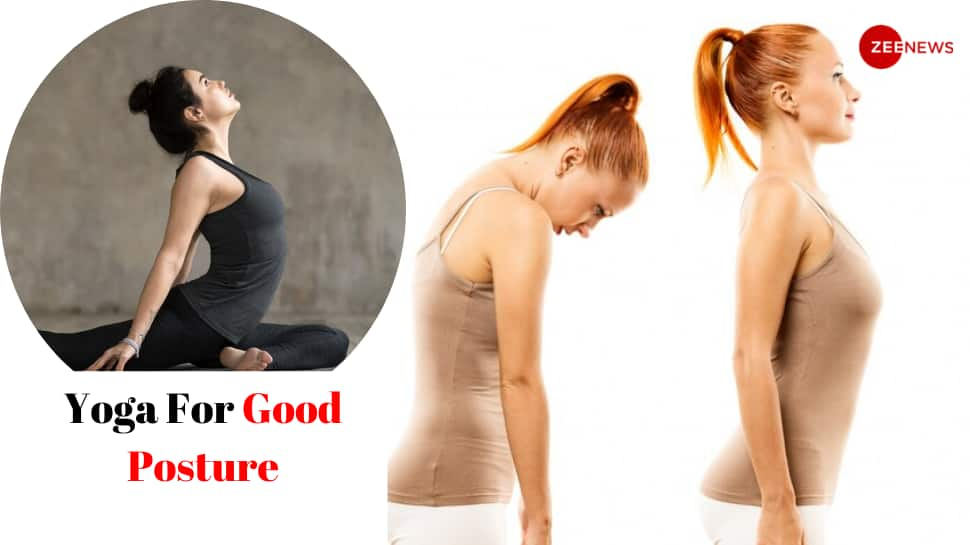As we gracefully navigate through the decades of life, certain changes become inevitable, and one aspect that subtly transforms is our posture. Beyond the age of 30, a series of gradual shifts occur, impacting our height, gait, and overall spinal alignment. On average, individuals experience a loss of about half an inch in height every decade from their peak, with this reduction becoming more pronounced after the age of 70. According to Dr Rajeev Rajesh, Chief Yoga Officer, Jindal Naturecure Institute, “A key player in this evolution is the change in intervertebral discs – gelatin-like cartilage between each vertebra – that tends to harden and lose flexibility with age, leading to spinal curvature and a forward tilt known as kyphosis.”
Here is a detailed interaction with Dr Rajeev on how to improve your posture and different yoga asanas that can help ease the foundational poses for a better body structure as you age:
How Yoga Enhances Posture
Yoga, a comprehensive practice encompassing physical poses (asanas), breathing techniques (pranayama), and meditation (dhyana), synergistically contributes to both your physical and mental well-being. The following highlights how yoga can positively impact and refine your posture:
Strengthening Your Core
The core, comprising muscles in the abdomen, back, pelvis, and hips, plays a pivotal role in supporting the spine and maintaining an upright stance. Yoga’s efficacy in enhancing posture stems from its ability to strengthen the core, thereby stabilizing the torso and preventing slouching.
Increasing Flexibility
Flexibility, defined as the range of motion in muscles and joints, is crucial for preventing tension, stiffness, and injuries. It also plays a significant role in sustaining proper posture by ensuring the spine stays aligned and restricting compensatory movements. Poses like downward dog, cat-cow pose, and shoulder opener pose are instrumental in gradually enhancing flexibility over time.
Yoga Poses for Posture Correction
Here are some foundational poses you can practice at home:
Tadasana – Palm Tree Pose
In an ideal stance for everyday life, Tadasana engages the entire body.
· Place your feet together and look in front at eye level.
· Interlock the fingers of the hands. While inhaling, raise the heels and arms.
· Align your head, ensuring the chin is parallel to the floor and the crown directly over your pelvis Maintain the position with normal breaths.
· While exhaling, bring the heels and hands down.
Vrikshasana – Tree Pose
This graceful pose emulates the solid stance of a tree, promoting a tall and straight posture.
· Stand upright, shifting your balance to your right foot.
· Place the sole of your left foot onto your inner thigh. The heel should be closer to the genitals.
· While inhaling, raise your hands above the head and join the palms together.
· Focus your gaze on a point in front of you for improved balance. Hold the final position for a minute
· To release, while exhaling, bring your hands down. Repeat on the other side.
Sukhasana – The Comfortable Pose
Ideal for meditation, Sukhasana is a straightforward yet effective posture.
· Sit with legs outstretched and back erect.
· Place palms on the floor behind your hips, fingers pointing backwards.
· Cross your legs, right foot under the left thigh and left foot under the right thigh.
· Keep the spine straight, hands on knees, eyes closed, and body relaxed.
· Breathe slowly and evenly, maintaining the pose.
Bhujangasana – Cobra Pose
Gently stretching the spine and opening the chest, Bhujangasana counteracts rounded shoulders.
· Lie on your stomach and keep the legs together. Place the palms beside the chest.
· While inhaling, engage back muscles to lift the head, and upper torso and look up. Align elbows under shoulders for support. Maintain the position for some time with normal breaths.
· While exhaling, bring the chin down and relax.


